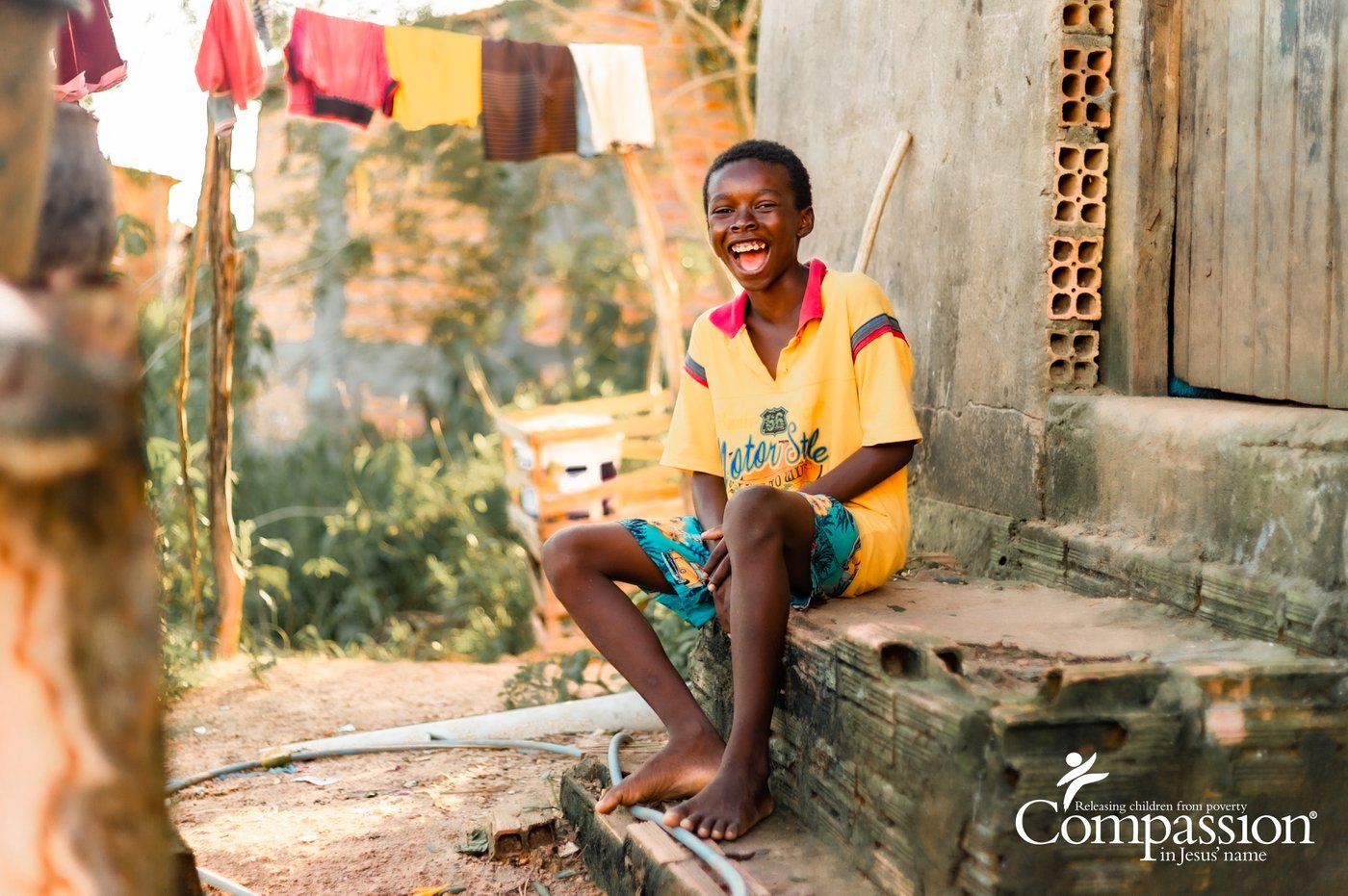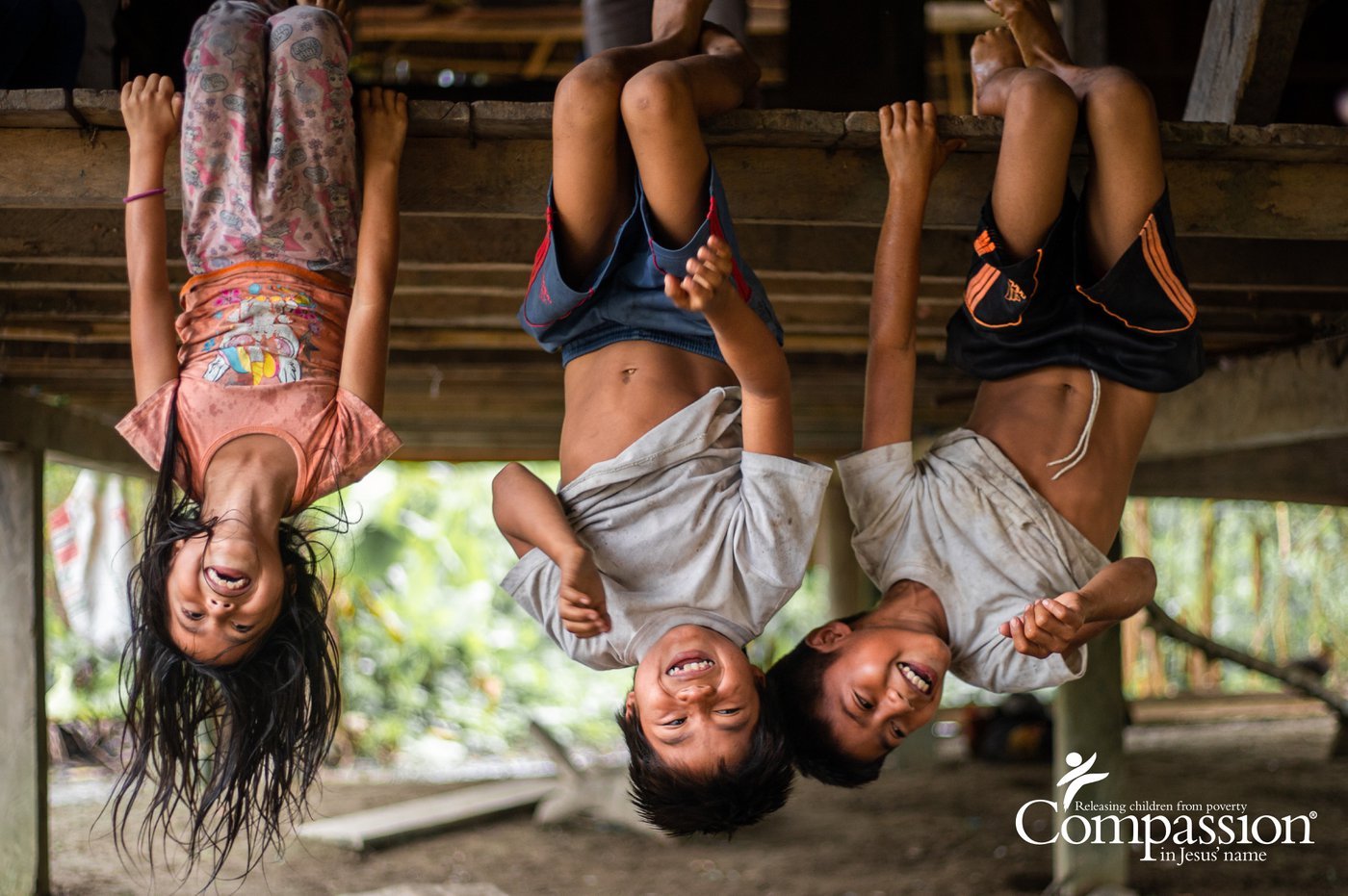Missions
Here are the some mission opportunities to pray about and to see what your involvement might be.
COMPASSION INTERNATIONAL
Compassion is about more ... it's about releasing entire families from poverty in Jesus' name!
Compassion has been helping children through sponsorship for 70 years.\
More than 2 million children across the globe receive assistance, help and support from Compassion.
People like you sponsor children in 29 countries through Compassion.
What makes child sponsorship with Compassion unique?
Sponsoring a child with Compassion is the most cost-effective way to end extreme child poverty. It not only addresses a child’s immediate physical needs, it also builds self-esteem and self-respect. Although there are similarities across other child sponsorship programs, Compassion’s approach is unique.
JOHN’s mission
DONATION/SUPPORT
John is currently serving as a missionary in regions where sharing the Christian faith requires great discretion due to increasing risks and challenges. For safety and security, detailed information and images about the work on the ground are not shared publicly. Most of you who follow his journey receive personal updates directly from him.
Your ongoing prayers and financial support are deeply appreciated and play a vital role in sustaining this mission. Together we continue to make a difference in areas where the love and hope of Jesus are needed most. Thank you for standing with John in this important calling.
Vineyard Community for Missions &
Church Planting in USA
We are currently committed to giving 2% to the Association of Vineyard Churches; Vineyard Community for Missions and Church Planting in USA.
The Vineyard has been called one of the fastest growing church movements of our time. This is what happens when planting churches is one of your highest priorities.
Today there are 600+ Vineyard congregations in the US, 2,400+ Vineyards in 95 countries internationally, and approximately 300,000+ people world-wide who consider a Vineyard their church.
Our call to church planting in all of its current forms – from traditional plants, to multi-sites, to missional communities, and more – runs deep in our movement. This is because we believe that the world needs Jesus, and local churches in cities, neighborhoods, and towns are still the most effective means of evangelism and discipleship that exists in the world today.
The Vineyard is growing – and we’re just getting started!
HOW DO CHURCHES GROW LIKE THIS?
Churches grow, and multiply, when a group of Christians gathers together to worship and to radically serve their community. They then multiply into other like-minded communities in neighboring locations.
We don’t multiply Vineyards because we think we’re the best church in town, but rather because we like who we’re called to be – and we want to reach everyone with the Gospel.
Multiply Vineyard is our national taskforce dedicated to helping local Vineyard churches start new communities and multiply in size and influence.
Our vision is to extend the kingdom of God by helping our local churches fulfill their God-given call to multiply the church.
We have a national goal to plant 750 new churches by the end of 2023. Join the movement in planting 750 new Vineyard churches in the next 10 years.
Campus Crusade to support
Peter and Mary Shegay in Asia.
Help Send 100,000 Bibles to the Ends of the Earth
To the ends of the earth, spiritual hunger is soaring. Men and women are dreaming of Jesus. Huge crowds are gathering to hear the gospel. Multitudes are lining up to receive His Word.Cru missionaries are requesting more Bibles to keep up with demand. Will you help? For just $6.75, you can provide a copy of God’s Word, translated into the heart language of the recipient. That includes any expenses for printing, shipping and distribution, even into very difficult/closed nations.
Your gift today — whether it be $67.50 for 10 Bibles, $81 for a dozen (enough for a small group!), $270 for 40 Bibles or more — will help send God’s Word to the ends of the earth ... giving seeking people not just a book, but the inspired Word of God! Whatever the Lord lays on your heart will help get Bibles to men and women who often have no other way to obtain God’s Word.
Thank you for considering a special Bibles gift today!
New Mexico Dream Center.
New Mexico Dream Center to support local trafficking ministry led by Shelly Repp.
OUR MISSION
The mission of NMDC is to provide a 360° strategic approach to address human trafficking in New Mexico through prevention activities,
outreach to victims, services for survivors, and a support system for clients in their self-determination.
OUR VISION
New Mexico Dream Center has the dream of one day no longer being needed.
OUR STORY
SOMETIMES OUR CALLING IS BORN FROM MOMENTS THAT ARE SUPPOSED TO BRING OUT OUR GREATEST WEAKNESS
In 2010, Shelley Repp had a series of encounters that exposed her to human trafficking. Shelley worked with a young refugee who was trafficked by her sponsor family. That same year a family friend adopted twins. The twin’s biological mother had been and was still being sexually exploited.
Shelley began to learn about the dangers of human trafficking, through research and news articles. However, human trafficking, sex trafficking in particular, became much more personal when she discovered that a family member had become entangled with the commercial sex industry.
Shelley did not remain silent about this crime. In 2011 she started an outreach ministry to women working in strip clubs. Through this work, she began a ministry called Spoken For. Its mission was to provide resources and services to women who had survived sex trafficking. In 2016 Shelley was invited to become a part of the New Mexico Human Trafficking Task Force. She gained knowledge and experience that helped her ministry, Spoken For, become an independent non-profit. This journey led her to another person who was a sojourner as well.
Rob Thomas was awakened several nights in a row with a recurring dream about starting an outreach ministry to the poorest and most vulnerable people in Albuquerque. He started the nonprofit, New Mexico Dream Center in 2016 and began to build financial support for his mission. Rob and Shelley had connected several times about their like organizations and Shelley had shared her heart about the connections she had discovered between unhoused youth and sex trafficking. She was driven to find a way to create a low-barrier resource for these vulnerable teens to help them not fall so easily into the trap of sex trafficking. Rob and Shelley decided to combine their resources of Spoken For and New Mexico Dream Center to create a stronger and more supported nonprofit. In 2018 they merged the two nonprofits and Shelley stepped into the role of Executive Director for New Mexico Dream Center and Rob shifted his role to become the President of the Board for their joint efforts. Soon after this merger, they located a building that was in the perfect part of town to open up the low-barrier resources Shelley felt so strongly about. The Harbour opened its doors in June of 2018 to begin providing outreach and services to young people struggling with survival on the streets of Albuquerque.
Today the New Mexico Dream Center continues to provide services to survivors of human trafficking and unhoused youth . It is an agency that believes that every human life is valuable to God and therefore to us.
IT IS PROOF THAT SOME OF OUR GREATEST AND MOST BOLD IDEAS ARE BORN FROM THE THINGS THAT COULD HAVE BROKEN US.
https://www.nmdreamcenter.org/






